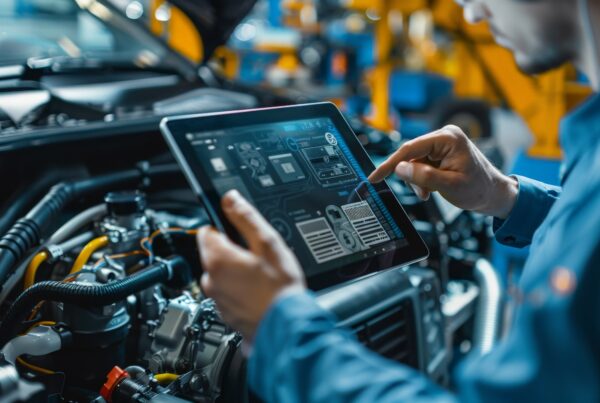Online. Virtual. A few years ago, these were the buzzwords of the moment as more automotive businesses talk about embracing the digital revolution.
Unlocking the potential of e-commerce has proven benefits and has brought increased efficiencies in other industries, so it seemed inevitable that automotive businesses would also embrace this shift in buying behaviour.
In truth, our industry has been slow off the mark in implementing new technologies. Until recently, the notion of a consumer purchasing a car and managing the process online was impossible for most dealers, and even now it’s mostly only the largest dealer networks that have established systems in place.
Omnichannel: The right choice for dealerships
Cox Automotive’s recent findings in its report “Are car dealers really set up for an omnichannel future?” reveal what consumers want from the automotive retail journey. Digital tools and online channels are, now, a much more widespread staple of the used car buying journey. The report surveyed more than 3,000 car-owning consumers and used car dealers.
Focusing on omnichannel – a strategy that integrates the ways customers can interact with a car dealership, including online, in-person and over the phone – the report focuses on how ‘connected’ the buyer journey is today, as well as whether omnichannel is just another buzzword, or something tangible that’s already happening.
An omnichannel approach can help used car dealerships improve the customer experience in several ways. Firstly, it allows customers to find vehicles on their terms, at their own pace. Secondly, it helps dealerships potentially reach a wider audience. Last, but not least, it can help dealerships ramp up customer satisfaction, as buyers are more likely to be happy with a buying experience that’s convenient and personalised.
Among other things, the report’s key findings are: Dealers are exceeding expectations when it comes to digital functionality. Also, a slick part-ex process is key (and a missed opportunity for some dealers). Thirdly, the demand for a simple and connected experience is pretty much universal. Also, dealers are investing more in their websites (as well as their online capabilities) and are seeing the benefits.
The expectation of quality and a joined-up experience
75% of consumers asked in the report expect a quality website when they’re looking for a vehicle to buy. And a good proportion of those people (35%) say the look and feel of a site, as well as its functionality, is a major influence on their decision to buy.
The majority of customers (92%) expect that they will be able to search available stock while 63% see part-exchange valuation as essential. What’s more, 94% of customers expect their interactions with a dealer to be “joined up and simple”, while 80% admitted that they expect details provided online to be available in-store.
Part-exchange is very important to consumers, according to the Cox Automotive findings, and bargain hunters are happy to put some effort in to get a more accurate valuation.
While 63% expect to be able to get a part-ex on a retailer’s site, 84% will happily provide additional information to get a more accurate valuation.
Dealers “exceeding expectations”?
Perhaps due to the effects of lockdown and the increased demand for online services and resources, many more used car transactions are taking place digitally. Almost half (47%) of dealers asked said demand for that functionality has increased in the past year. That shouldn’t come as a surprise, especially as nearly a third (29%) of consumers expect to be able to complete a purchase online.
Many dealers can buck these trends by providing online tools, such as accurate valuation functionality, making the part-exchange as smooth and transparent as possible for the consumer.
eVA, our used car appraisal and valuation software, combines accurate and trustworthy vehicle valuations with a consumer-friendly appraisal tool that connects the online to the in-store customer journey. Once integrated into a dealer’s website, a consumer can find their new car, appraise and value their existing car, then build that into the new deal as a part-exchange. The platform synchronises the customer journey, meaning all data is carried over so the conversation can pick up where the online process ended if needed.
Such a platform brings obvious benefits. By allowing a consumer to self-appraise their vehicle online and use it as a part-exchange in their new car deal, the dealer knows they are serious about the purchase ensuring only the highest-quality leads filter through to actual physical contact. This trust building goes both ways as the consumer will go into the dealership knowing that the details have already been worked out and they are not making an unnecessary journey.
Typically, 33% of deals fail due to a disagreement on the valuation. Consumers looking for their next car will surely flock to those dealers that provide the ability to complete the majority, if not all, of the deal online.
The full digital report can be downloaded here.




